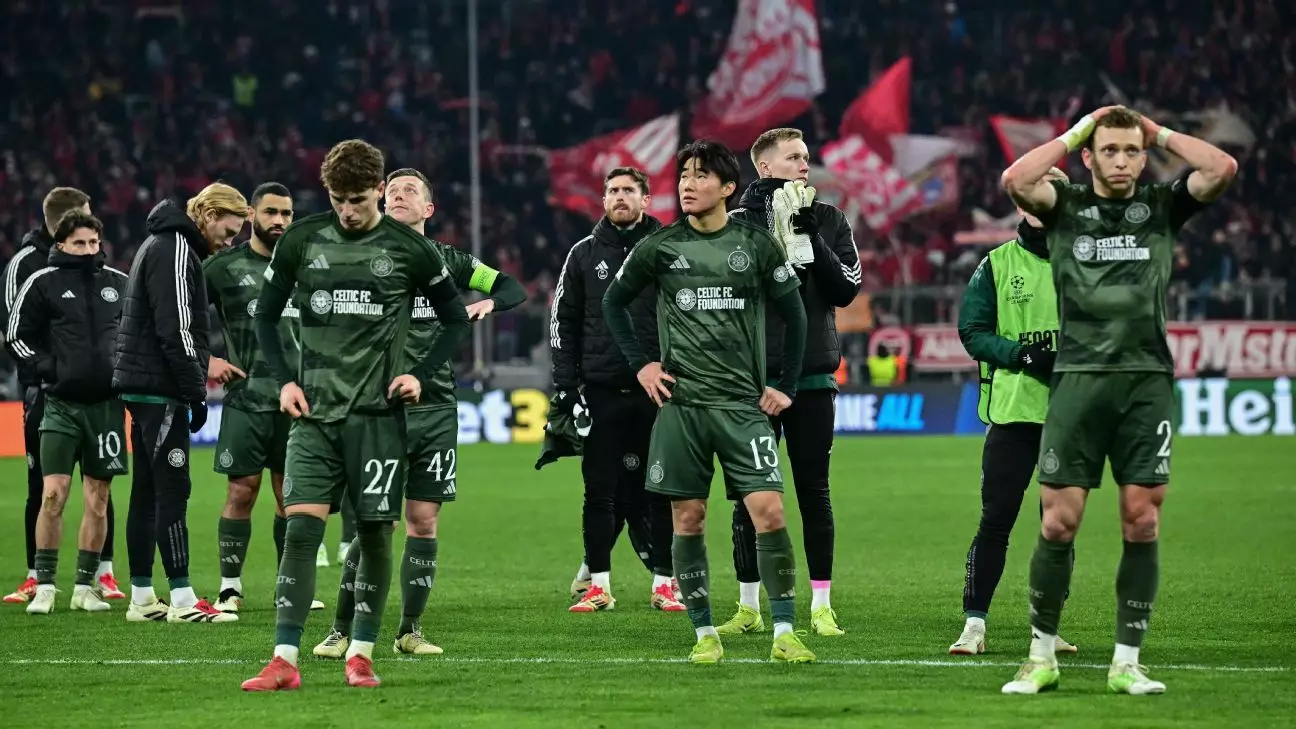Celtic FC, under the guidance of Brendan Rodgers, recently faced a daunting challenge as they took on Bayern Munich in a critical Champions League match. Despite the bitter disappointment of a last-minute goal that ultimately spelled the end of their European aspirations for this season, the resilience displayed by Celtic on such a grand stage elicited immense pride from both the manager and players. With a spirited effort, Celtic managed to strike first, bringing a glimmer of hope when Nicolas Kühn capitalized on a defensive error from Bayern, leveling the aggregate score and providing an unexpected twist to the match.
Rodgers acknowledged the significance of this encounter, emphasizing the importance of European credibility for the club. In his post-match comments, he highlighted that such experiences are invaluable for the growth of his team. “We ran a team that will see themselves as potential finalists very, very close,” he remarked, recognizing that his players faced a formidable opponent head-on. This was not just a loss; it served as a crucial learning opportunity, one that will shape their approach in future competitions. The manager’s long-term vision aims to transform Celtic into a seasoned club that consistently competes at these elite levels.
The joy of an early goal, quickly overshadowed by the heart-wrenching conclusion, evokes the cruel nature of football. Kasper Schmeichel, the Celtic goalkeeper, reflected on the emotional rollercoaster experienced on the pitch. His assessment of the match as a “heroic performance” underscores the tangible pride felt by the squad despite the outcome. He articulated that once the immediate sting of disappointment subsides, the players would likely view their performance with a greater sense of appreciation. This sentiment resonates deeply within the football community, as the passion surrounding the sport often leads to stark contrasts between the heights of elation and depths of despair.
Though the game ended in a draw, the electric atmosphere and competitive spirit displayed by Celtic suggest that they are laying a strong foundation for future endeavors in European football. The players’ determination to fight until the last whistle, even when facing a powerful team like Bayern Munich, is nothing short of commendable. The experience gained from this match will undoubtedly bolster their resolve in future competitions. As they regroup and refocus, the lessons learned during encounters with European elites could serve as stepping stones toward building a more resilient team.
While this chapter may have concluded in heartbreak, Celtic’s brand of football—characterized by bravery and unity—resonates far beyond the confines of a single match. The journey does not end here; rather, it paves the way for aspirations of glory on the European stage. With a renewed sense of purpose and lessons learned, Celtic fans can look forward to a future filled with hope and potential achievements that extend their legacy in the sport.

